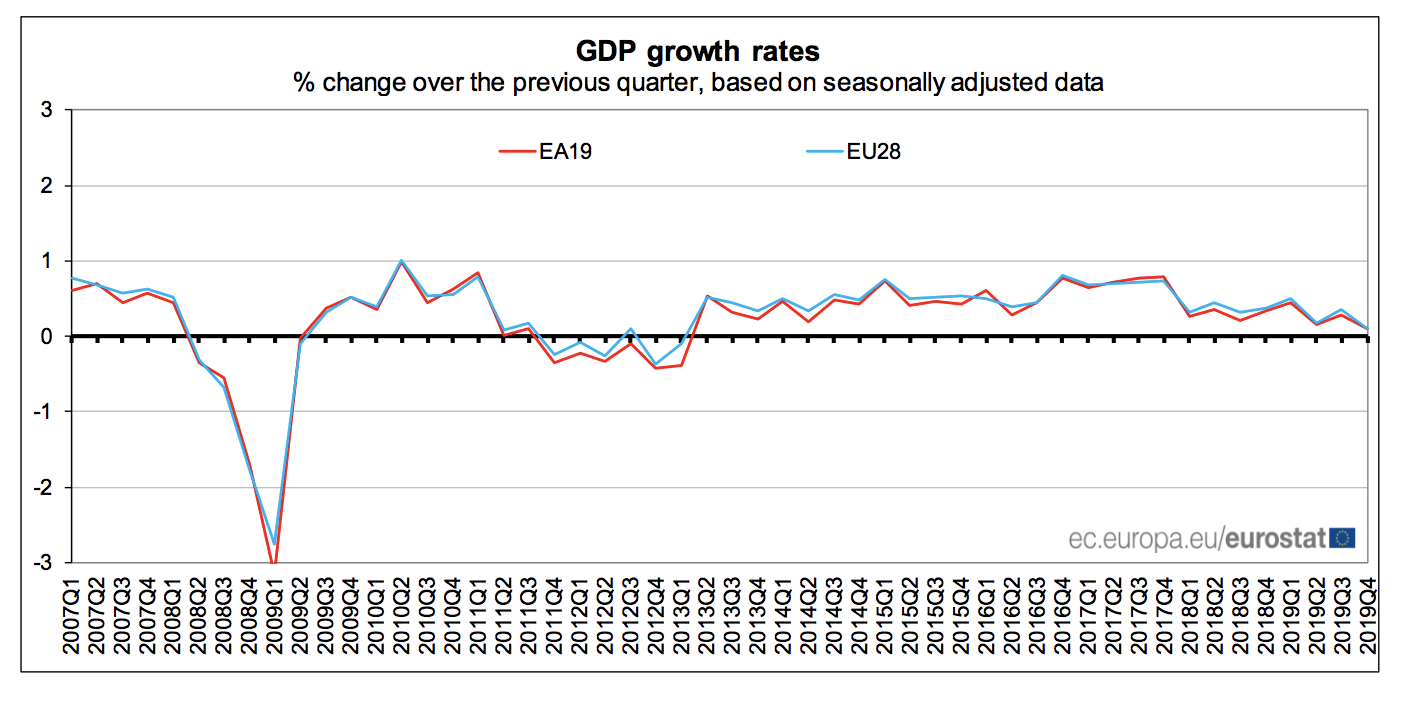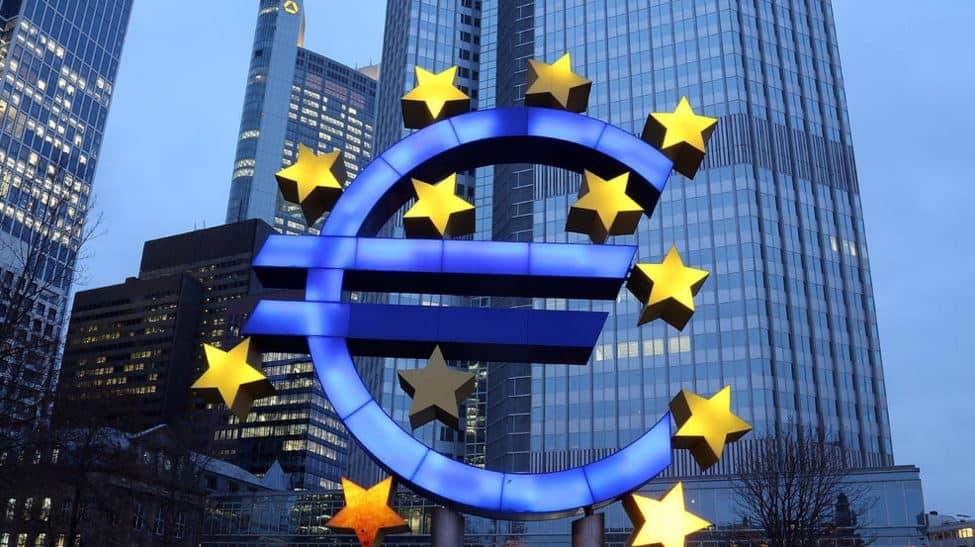
The Eurozone economy expanded by just 0.1% in the three months to the end of December, according to preliminary flash estimate published by Eurostat, the statistical office of the European Union.
The figures were released on the day that the UK formally left the EU.
Compared with the fourth quarter of 2018, seasonally adjusted GDP rose by 1.0% in the euro area and by 1.1% in the EU28 in the fourth quarter of 2019, after a 1.2% and 1.4% increase respectively in the third quarter.
Two of the region’s largest economies contracted in the quarter. The economies of France and Italy shrank by 0.1% and 0.3% respectively.
The fourth quarter of 2019 was the region’s worst performance since the beginning of 2013. Growth was weighed down by a slump in world wide, political problems in Italy and strikes and protests over pension reform in France.
Of the eurozone countries to report GDP figures on Friday, Spain was the only country to Spain report an expansion over the fourth quarter, as growth increased slightly to 0.5% — driven by robust exports.
Fourth quarter figures for the region’s largest economy, Germany, will be published next month.
On a positive note, employment in the region has been on the rise. According to a Eurostat report last month, seasonally-adjusted unemployment rate was 7.4% in December 2019, down from 7.5% in November 2019 and from 7.8% in December 2018.
Annual growth
According to a first estimation of annual growth for 2019, based on quarterly data, GDP expanded by 1.2% in the euro area and 1.4% in the EU28.

